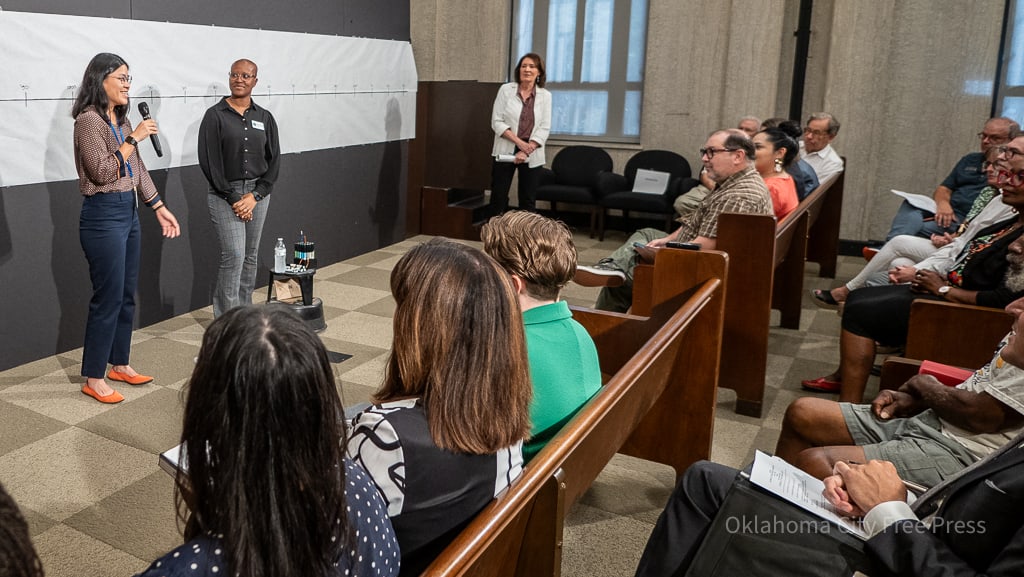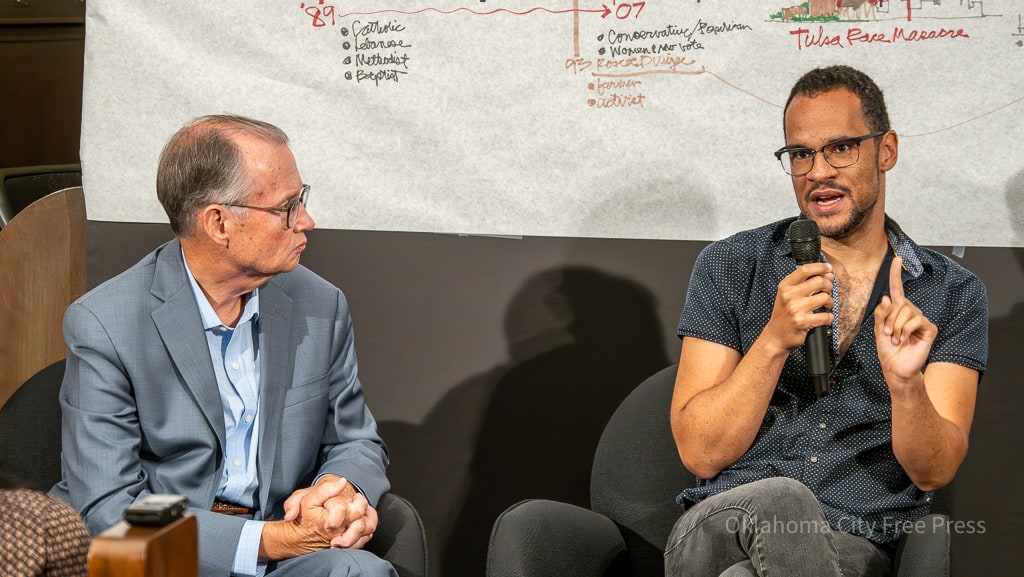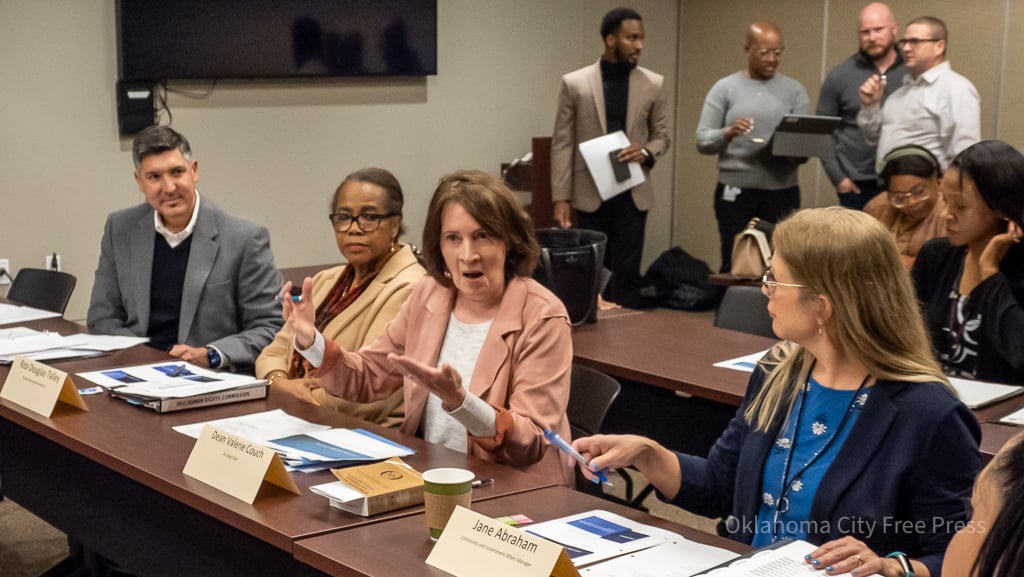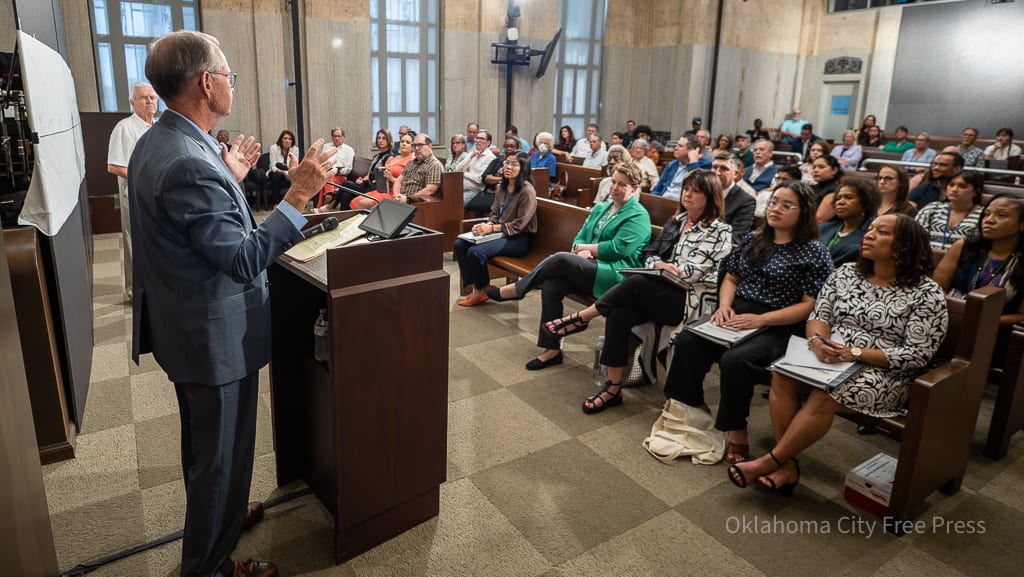Last Updated on September 16, 2023, 11:22 PM | Published: September 16, 2023
OKLAHOMA CITY — After being newly re-established by a City Council vote in July of 2022, the Oklahoma City Human Rights Commission has spent its first year back in action organizing human rights education events and developing the protocols for submitting and addressing complaints and violations.
2022 saw a series of gradual moves in the city council toward reviving the city’s long-dormant Human Rights Commission for addressing issues of undue exclusion and discrimination, primarily on racial or sexual grounds, culminating in a contentious and emotionally charged vote that narrowly passed 5-4.
“We have validated that all are welcome in Oklahoma City,” said Mayor David Holt in a press statement following the vote, in which he joined the majority in voting in favor of the commission. “Human rights for all is something we stand for.”
The original OKC Human Rights Commission was formally dissolved by the Oklahoma City Council in 1996 in light of disapproval for the commission’s insistence on equal protection for the LGBTQ community at the time.
‘Valuable information’
Though the commission’s top priority is ostensibly its role in addressing, mediating, and working to resolve violations of anti-discrimination laws in Oklahoma City, the HRC’s first year has focused heavily on public education and events while working to develop the complaint reporting platform and necessary partnerships.
“There was a clear interest in education in the first year,” said Emma Winiski, Compliance Officer and Special Program Coordinator for the HRC. “They provided valuable information about the history of human rights efforts in Oklahoma City and beyond.”

In May of this year, the HRC hosted a public Q&A and conversation with Dr. George Henderson, longtime Dean of OU’s College of Liberal Studies and, along with his family, one of the first official Black residents of the city of Norman.
“I know what it’s like to have a police officer pull you over and ask you why you’re in the neighborhood where you live,” Dr. Henderson told the event’s audience, recounting his own lifetime’s worth of personal experience with discrimination. “But I also know what it’s like for people to say ‘we’re glad you’re here,’ so there are always two sides to this issue.”
‘Embedded in the culture’
Likewise, the July 2023 meeting of the Human Rights Commission focused on a presentation by Dr. Bob Blackburn.
As Executive Director of the Oklahoma Historical Society, Dr. Blackburn spoke at length about the full human rights history of the state, covering not only the well-documented horrors and violations visited upon the Black and Native populations but also noting the history of activism and human rights heroes.
“It’s embedded in the culture,” Dr. Blackburn explained as a pictorial timeline of the state’s history was hand-drawn behind him, “not just in the Black population, but in the White population that has to use fear and tyranny in the whip. It becomes part of the community. And the inability to know that you are doing an injustice suddenly seems okay, because it’s the way it’s always been.”

That presentation was capped by Councilperson James Cooper (Ward 2), OKC’s first-ever openly gay city councilor, who spoke about the unique challenges of LGBTQ+ activism in Oklahoma and the queer community’s inextricable place within all other human rights histories.
“Our history is too often marginalized,” said Cooper. “Our history doesn’t exist in K-12 textbooks. They purposefully remove it.”
Process of filing complaints
Those kinds of informative and educational events regarding the history and necessity of human rights protections in Oklahoma City will remain an ongoing, regular part of the HRC’s operations, but so far have served as a precursor to the commission’s primary responsibility: collecting and addressing complaints of discrimination in OKC.
“In addition to educational events,” said Winiski, “the Commission and the HRC Compliance Officer have been working to establish a process for filing and processing complaints.”

That process takes the form of a trio of online submission forms for complaints, separated into issues of housing, employment, and the more broadly encompassing “public accommodation,” each with fields to report discrimination on grounds such as sexual orientation, race, creed, disability, and even retaliation for legal charges or testimony.
The response has been slow as of yet, potentially owing to a lack of awareness of the new complaint process.
“So far, there have been no complaints filed that are within our jurisdiction,” said Winiski. “However, since multiple community members have reached out about issues, it is clear that the HRC can serve as an important connector from residents to relevant referral agencies.”
The expectation remains that, as word spreads and more members of the city’s most marginalized communities become aware of the Commission and its available processes, the HRC will be able to address more of these issues and to provide a greater sense of resolution.
Engagement and Respect
While there was some concern about public backlash to the HRC following the impassioned opposition during the July 2022 vote, Winiski says they surprisingly haven’t experienced any clear contention since becoming established.
“Despite opposition before the City Council vote, there has not been direct opposition or obstruction against the HRC,” she said. “Members of the public have engaged in the public process and have respected the votes of the City Council.”
To learn more about the OKC Human Rights Commission, or to file a report of illegal discrimination, visit okc.gov/government/office-of-inclusion-diversity/human-rights-commission.
Brett Fieldcamp has been covering arts, entertainment, news, housing, and culture in Oklahoma for nearly 15 years, writing for several local and state publications. He’s also a musician and songwriter and holds a certification as Specialist of Spirits from The Society of Wine Educators.











